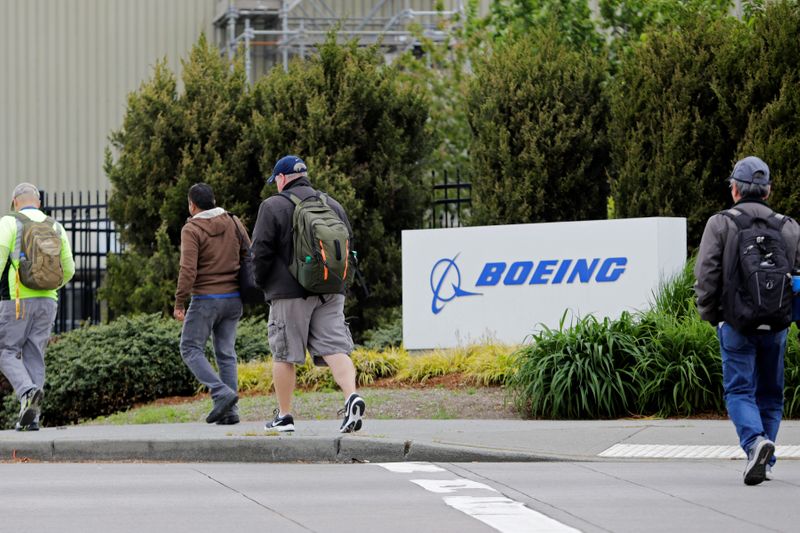This post was originally published on this site
https://i-invdn-com.akamaized.net/trkd-images/LYNXNPEG3O05B_L.jpg
(Reuters) – Two proxy advisers, Glass Lewis and Institutional Shareholder Services (ISS), have recommended that shareholders of Boeing Co (N:BA) vote against key board members of the planemaker to show objections to the company’s handling of the 737 Max crisis.
Glass Lewis recommended that at Boeing’s annual meeting on April 27 shareholders vote against Larry Kellner, the chairman of its board who previously oversaw the board’s audit committee.
“We believe the audit committee failed to mitigate the risk posed by management’s decisions and should be held accountable for its oversight,” Glass Lewis said in its recommendation.
In a separate recommendation, ISS advised shareholders to vote against four longtime board members – Arthur Collins, Edmund Giambastiani, Susan Schwab and Ronald Williams (NYSE:WMB) – who had served when the 737 MAX was being developed and rolled out.
ISS also said that a vote for newly named Boeing Chief Executive David Calhoun is “warranted, with caution” and that he will need to show that he can be an “effective leader of cultural change” at the company.
The recommendations, issued earlier in April and viewed by Reuters, were reported first by the Wall Street Journal on Friday.
Boeing did not immediately respond to a Reuters request for comment. In a Boeing statement cited by the Journal, a spokesman said the planemaker is continuing to learn from the 737 Max crashes and is taking actions to rebuild trust.
Proxy advisers recommend how investors should vote in corporate elections and cast ballots on behalf of some asset managers. The role of proxy advisers has gained more attention in recent years as they have grown more influential.
Boeing, which has been struggling to get its 737 MAX aircraft flying again following two fatal crashes in 2018 and 2019, has been forced to cut production due to falling demand amid the coronavirus pandemic. And doubts are gathering over its $4.2 billion deal to buy the civil jetmaking arm of Brazil’s Embraer (SA:EMBR3).
The Chicago-based company suspended 737 MAX deliveries in March 2019, when the Federal Aviation Administration grounded the aircraft following the deaths of 346 people in crashes of two 737 MAX planes operated by Lion Air and Ethiopian Airlines.

